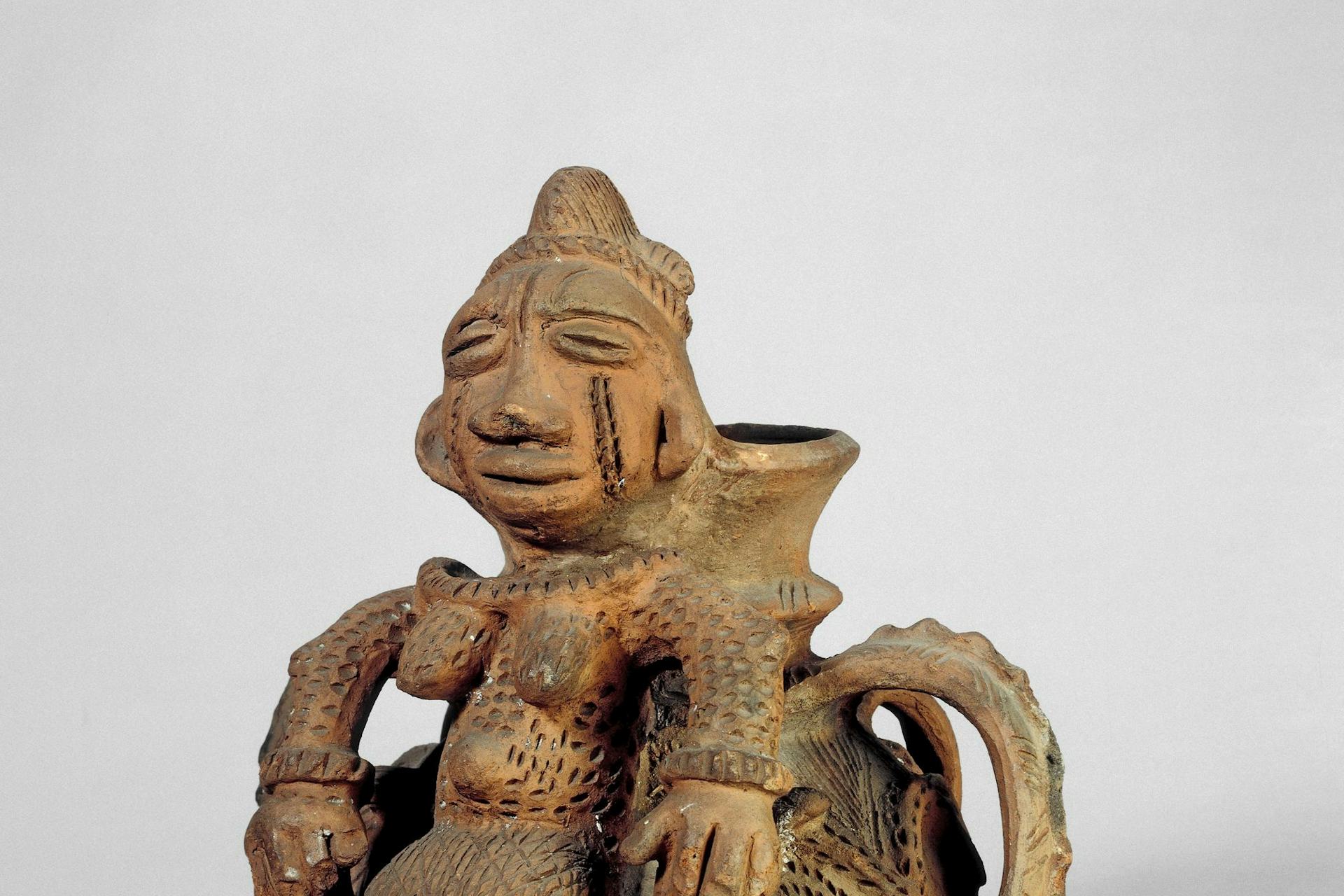Olokun

A pot from a woman's shrine to Olokun, by Edo artist (16th to 19th century)
British MuseumCC BY-NC-SA 4.0Overview
Olokun is a Yoruba goddess of the ocean. Though the name “Olokun” is sometimes used as an epithet for Yemọja, the mother goddess and the source of all water, Olokun herself has a more specific domain: she is the goddess of the primordial seas that covered the world before the creation of the earth. During that early period, Olokun lived in a “world of sea, marshes and mist,” while the other gods inhabited the skies.[1]
Among the Edo and some of the Yoruba people of Nigeria, Olokun is a male deity, but the Fon and other Yoruba believe Olokun is female.[2] She is usually cited as the wife of Orunmila, the god of divination.[3]
Like many water deities, Olokun is a fertility goddess who can provide children for her barren followers. But Olokun can also be unpredictable (much like the waters she controls), often with devastating consequences. She protects those who worship her, especially sailors,[4] but many myths also highlight her anger and her need for appeasement and sacrifice.
Pronunciation
English
Yoruba
Olokun Olókun Phonetic
IPA
aw-law-koo ɔ̄.lɔ́.kũ̄
Olokun and the Creation of the Earth

Five-pronged spike or iron, a ritual object representing Olokun, by Nigerian artist (1904-1913).
British MuseumCC BY-NC-SA 4.0Olokun’s most famous myth is related to the creation of the earth. According to this story, Obatala thought that the watery abyss below the gods’ heavenly home would benefit from the creation of land—a place where humankind could live. Thus, Obatala (along with many other gods) descended from the skies to begin creating land and mankind.[5]
But not all of the gods were happy about the creation of humans. Olokun in particular was angry that Obatala had disturbed her watery home, shaping the world without her permission. Thus, when Obatala returned to heaven for a short rest, Olokun flooded the land that he had formed. This flood devastated homes and crops, killing many people in the process.
The people called out to Obatala for help, but he did not hear them. They therefore prayed to Esu, the messenger god, instead. Once the proper sacrifice had been made, Esu brought their requests for aid to Obatala. Concerned about the situation, Obatala turned to Orunmila (Olokun’s husband), who restored the flooded world to order.[6]